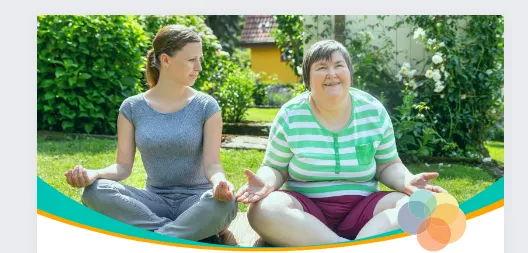Why Should You Get Outside More?
- News

Celebrating Earth Day
Have you ever found yourself outside mesmerized by clouds moving across the sky, enthralled by the movement of a bonfire or just content in watching a tree sway in the breeze? That’s because we are wired to be outside. Nature has an innate ability to capture our attention and heal our minds. This Earth Day, we’re celebrating the biological benefits of being outdoors.
Kristen Elliott, a psychiatric nurse practitioner at Boundless, works with patients from ages 6 to 83. In both children and adults with developmental disabilities, there is an underlying component of anxiety. Elliott has noticed that for everyone, but especially her patients, nature is a great tool for managing anxiety.
“Research has shown that our cortisol levels and our stress hormone levels decrease when we are outside in nature, even just looking at a picture of nature is helpful within a few minutes, we see a reduction in those stress levels.”
A common issue with constantly spending time inside is sensory overload. By remaining in a space where we expect ourselves to be productive whether that be by cooking, cleaning, finishing projects or working from home, we never give our brains the chance to turn off. Combining that with constant accessibility to screens, artificial lighting and everyday mechanical noises, we can easily become over stimulated. And while indoor tools like sensory rooms can help, just getting outside for 20 minutes has been proven to help restore our brains and attention spans.
Attention restorative theory explains how nature relaxes our brains. Elements in nature contain fewer stimuli and have repeating patterns our brains can easily latch onto. These elements effortlessly engage our attention, lower stress hormones and, most importantly, physically distance us from environments we associate with work or other stress.
Elliott explained, “We're so heavily reliant on technology and screens and devices, which I think across the board increases our anxiety and makes it difficult to focus. And so being outside...we need to be away from those devices.”
As a psychiatric nurse practitioner, Elliott’s role centers around finding and prescribing medication that will best help an individual manage whatever they’re struggling with. However, the first step is always determining whether medication is necessary.
“I think I can talk for the other nurse practitioners as we typically prefer to not prescribe medication. So, if there is any way we can utilize things like being in nature, getting exercise, sleep hygiene before prescribing a medication that is always the best option.”
Elliott’s best practice for utilizing nature at home includes regulating screen time and substituting it with time outside. Coming out of a long winter, we know that getting outside is difficult when the weather won’t cooperate, but creating artificial natural environments indoors can still offer some of the benefits of being outside. This includes utilizing houseplants, whether real or fake, decorating your home with natural pictures or murals and finding ways to be active indoors. Elliott also recommends waking up with the sun instead of your phone. Getting a good dose of sunlight first thing in the morning is great for regulating sleep patterns.
Before summer starts, set a mid-year resolution to spend more time outside. Research activities that interest you and brainstorm ways to move some of your favorite activities outside. See what events your community has to offer and take note of how you feel after practicing these healthy habits. Remember a great resource is right outside your front door, you just have to step outside to use it.





